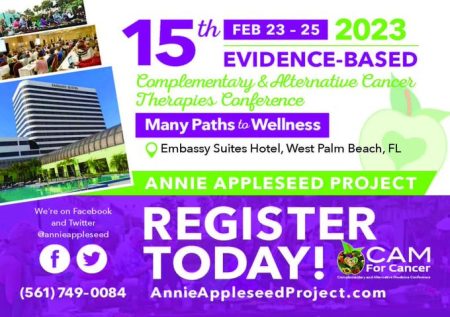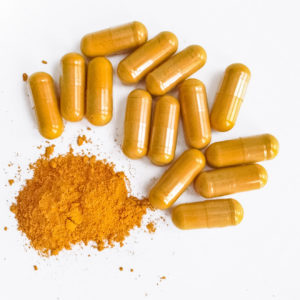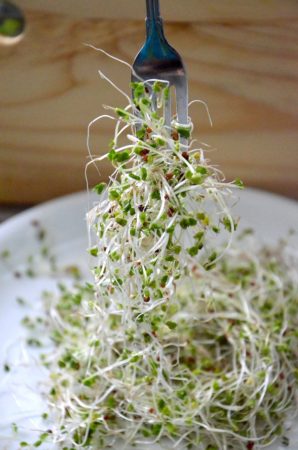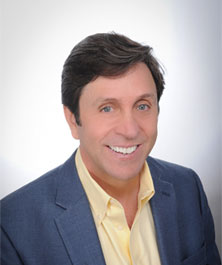 The Annie Appleseed Project was founded in 2000 by Ann Fonfa, a 25 year breast cancer survivor and warrior, whose journey was chronicled in Hope Never Dies.
The Annie Appleseed Project was founded in 2000 by Ann Fonfa, a 25 year breast cancer survivor and warrior, whose journey was chronicled in Hope Never Dies.
The goal was to bring complementary and alternative therapies to the mainstream, while also serving as a place where all ideas are scrutinized.
From its inception, the Annie Appleseed Project sought to …
- Challenge the existing treatment paradigm
- Question the existing research methods and subjects
- Propose new directions for both, ending with true Integrative Oncology
The first Annie Appleseed Conference took place in 2005.
2023 Conference: CAM (Complementary and Alternative Medicine) for Cancer
The theme of this year’s conference is Many Paths to Wellness. A robust agenda includes presentations from medical doctors, PhDs, researchers, experts, Naturopathic Doctors (NDs) and practitioners, as well as survivors, including Ann Fonfa herself.
Many Paths to Wellness
Within this year’s packed agenda are the following renowned speakers and their topics:
- Keith Block, MD: Known to many as the patriarch of Integrative Cancer Medicine, Dr. Block will discuss Cancer Recovery: Importance of Overcoming a Disrupted Terrain
- Kelly Turner, PhD: Kelly will share a documentary screening of Personalizing Herbal Supplements
- Charles Bens, PhD: A topic sure to resonate with all attendees, Dr. Bens will discuss Optimizing Cancer Prevention and Recovery
- Isaac Eliaz, MD, MS will examine The Survival Paradox: Targeting the Root Cause of Cancer and Chronic Diseases
Conference Details, Registration & Logistics
15th Annual Evidence-Based Complementary & Alternative Cancer Therapies Conference
Feb 23-25, 2023 in West Palm Beach, FL
The conference begins on Thursday, February 23 at 2PM (arrive a bit early to pick up badge and giveaway bag). The conference ends Saturday, February 25 at 5PM.
- Full Conference – Up to 13 hours CEU’s (Continuing Education Credits) or CNE’s
- One day (Thursday, Friday or Saturday) or two day registrations are also available
Background and history – Annie Appleseed Project
The Annie Appleseed Project hosts a yearly CAM Conference for Cancer: Evidence-Based Complementary and Alternative Cancer Therapies. It is an opportunity for practitioners and laypeople to learn more about options in the treatment of cancer. Each year, speakers report on developments and changes in the world of cancer.
The Annie Appleseed Project offers information, survival strategies and support for individuals dealing with cancer, including …
- Nutrition
- Mind/Body
- Detoxification
- Dietary supplements
- Physical activity/exercise
- Natural therapies/substances
- Lifestyle issues
I look forward to seeing you at the CAM for Cancer conference!
 Anti-Cancer Nutrition
Anti-Cancer Nutrition Curcumin is a component of the spice turmeric, which can be found in many people’s spice cabinets. Commonly consumed in many Asian countries as a culinary ingredient, it gives curry and mustard their yellow color. Turmeric has also been used for medicinal purposes for centuries.
Curcumin is a component of the spice turmeric, which can be found in many people’s spice cabinets. Commonly consumed in many Asian countries as a culinary ingredient, it gives curry and mustard their yellow color. Turmeric has also been used for medicinal purposes for centuries. When mom said, “Eat your broccoli” you should’ve listened. The good news is, it’s never too late to start. Why should you? Because there’s an
When mom said, “Eat your broccoli” you should’ve listened. The good news is, it’s never too late to start. Why should you? Because there’s an 

